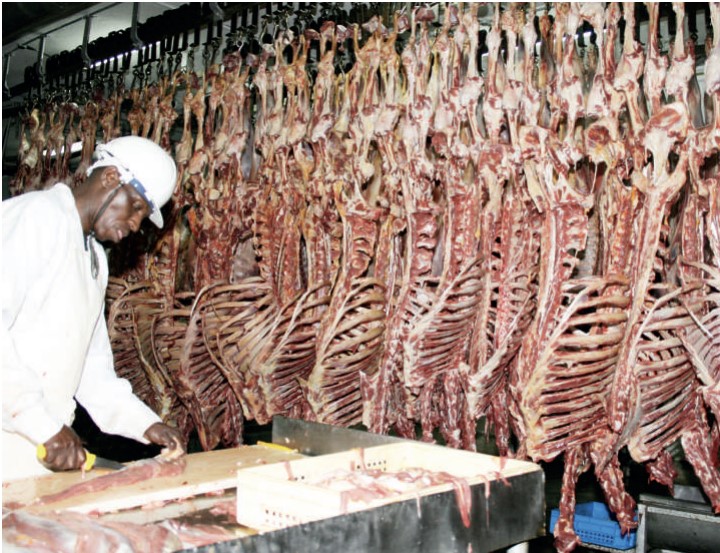
Kenya is keen to grow its meat exports to Europe, riding on the Economic Partnership Agreement (EPA) with the European Union that came into effect on July 1.
In a government-private sector partnership, the country is eying the more than 448 million population market in the vast EU, where it has already cemented a market for horticultural exports led by flowers avocadoes and tea.
The Kenya Association of Manufacturers (KAM) is leading the drive to increase meat exports.
Kenya exports of meat and edible meat offal was valued at paltry $135.23 million (Sh17.5 billion) last year, according to the United Nations COMTRADE database on international trade.
“The European Union imports $50billion of meat and meat offals and a further $11 billion of live animals every year. Kenya currently doesn’t export any meaningful quantities of these products to the EU,” Trade PS Alfred K’Ombudo noted.
The State Department for Trade and the Kenya Association of Manufacturers (KAM) this week pitched a tent in Isiolo to advance the EU-EPA and share with players in the livestock sector the opportunities for export into the EU.
This is part of an ongoing sensitisation process carried out in partnership with the European Union in Kenya and other players.
Participants were taken through a brief on the Kenya-EU EPA Agreement and its relevance to Kenya, how to access the EU market and support programs available, Sustainable trade (ESG) and EU due diligence, and provisions on agriculture and its relationship to industrialisation.
“Northern Kenya remains a critical part of the country due to its economic activities including a thriving livestock economy. Livestock products, including milk, meat, hides and skins, are some of the items that Kenyans can export into the quota free, duty-free EU market under the agreement that has opened market access for value-added products,” KAM said.
Member of the National Assembly Committee on Trade, Industry and Cooperatives and Kieni MP, Wainaina Njoroge, called for the production of quality goods that meet world class standards as they seek to venture into markets such as the EU.
The EU-EPA agreement aims to boost bilateral trade in goods and investment flows; contribute to sustainable economic growth between the two partners; and accompany trade-related development cooperation to support economic growth and job creation.
The agreement mirrors the EAC-EU EPA. Kenya has committed to liberalise the equivalent of 82.6 per cent of imports from the EU by value, over a period of 25 years starting on the 7th year after the agreement gets into force.
It is also envisaged that under the agreement, Kenya will benefit from other provisions that consider its development needs such as special safeguards for agriculture, measures on food security and infant industry protection.
The production of meat and meat products; and processing and preserving of fish, registered growth rates of 10.1 per cent and 2.8 per cent respectively in 2023, the Economic Survey 2024 indicates. \
Last year, the value of total exports to the European Union (EU) registered an improvement of 12.7 per cent to Sh150.1 billion, from Sh133.2 billion in 2022.
“The rise was partly contributed by increase in domestic exports of cut flowers and avocados to the Netherlands and beans to France. Similarly, foreign export earnings from the United Kingdom rose from Sh44.6 billion in 2022 to Sh54.7 billion in 2023, largely driven by increase in domestic exports of tea and cut flowers,” the survey states.
According to the Ministry of Investment, Trade and Industry, the EU-Kenya EPA is the most ambitious deal negotiated with an African country in terms of sustainability and serves as a template for other sustainable trade agreements.
These commitments include binding provisions on labour issues, gender equality, environment and the fight against climate change.
Kenya is East Africa’s main economic hub and EU-Kenya trade
relations have substantial growth
potential.
An increase in meat exports
means Kenya will be diversifying its
markets which have mainly been
United Arab Emirates, Saudi Arabia,
Bahrain, Kuwait and Oman.








